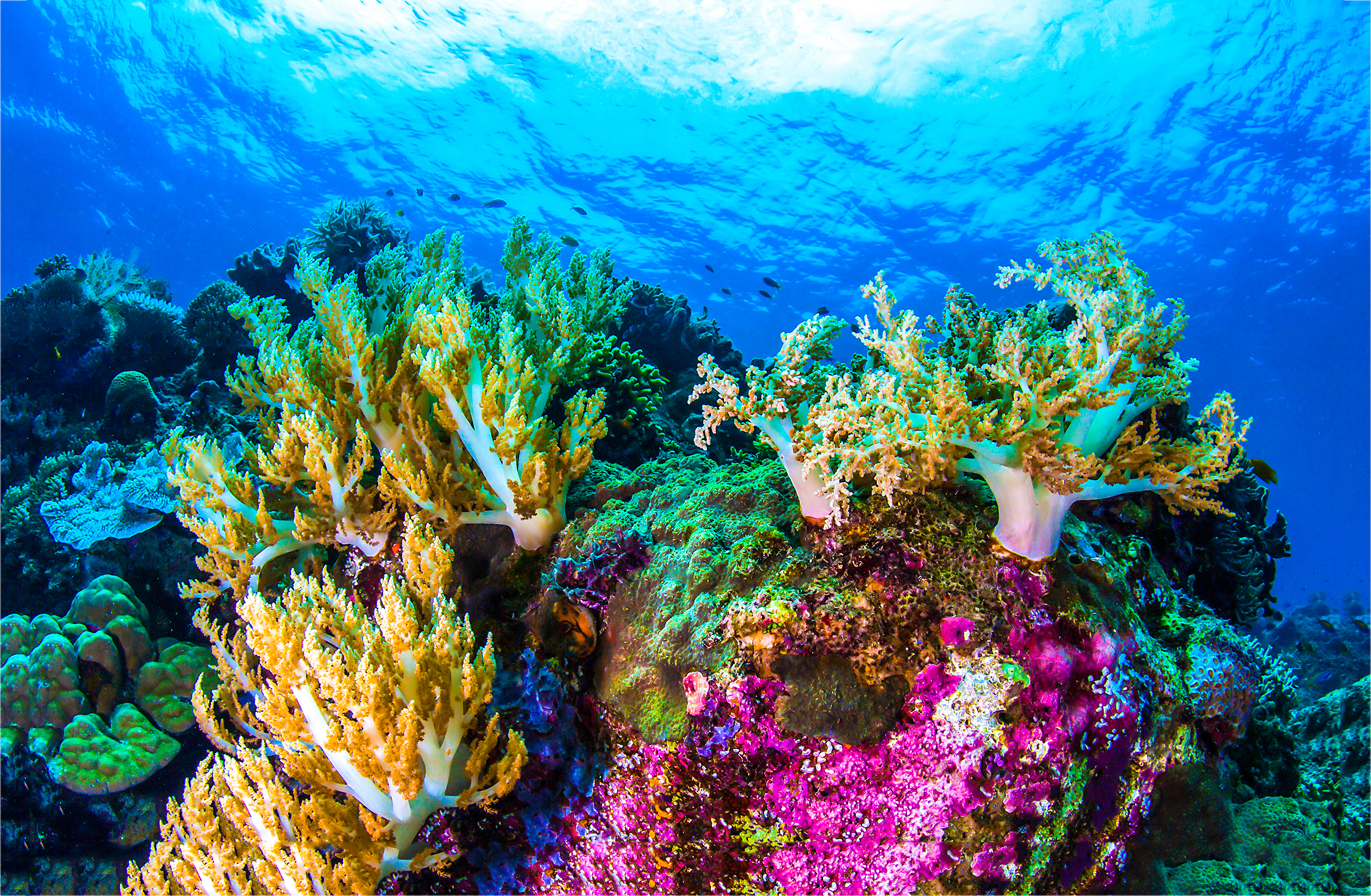
As any snorkeling or scuba diving aficionado can attest, coral reefs are beautiful to behold. But look a little closer and these wondrous feats of nature aren’t just another gorgeous underwater feature to be marveled at—their purpose is actually quite integral to the ongoing survival of many. And yes, that includes humans.
Today, thanks to climate change and other consequences of human activity, reefs are dying at a record rate; half the Great Barrier Reef has died since 2016 alone. Now, experts predict the majority of these majestic natural wonders could be abolished within decades if something doesn’t give.
That’s a big deal—not only to humans living off of coastlines around the world, but to the rest of us as well. Here are nine reasons coral reefs are so integral to our survival.
They serve as a natural flood defense
During storms, floodwaters and giant waves are forced to roll through coral reefs before they hit land, resulting in a massive energy loss. While it’s hard to put a number on just how many lives have potentially been saved from the natural flood-protection services such coral reefs have provided, a new study estimates the benefit could be worth roughly $4 billion U.S. per year.
They also control erosion
Speaking of powerful ocean currents, many of them would easily erode some of the world’s most beautiful beaches and shorelines if coral reefs weren’t in place. Okay so sure, fewer beaches aren’t an actual necessity for the survival of the human race, but our world would be a lot duller without them. Besides, we’re fans of having lots of land mass to live on.
They help counter climate change

As mentioned, when those waves hit coral reefs, the water is redirected and slowed down. If those reefs weren’t there, not only would humans be more susceptible to natural disasters and the land in danger of more erosion, but the currents themselves could be redirected and even change course permanently. Were that to occur, hot- and cold-water ocean mixing would inevitably change too, resulting in more climate change.
They provide better air quality
Corals play an important part in regulating the carbon dioxide levels in the ocean and in the air mass above it, since they use the dissolved carbon dioxide in the ocean to form new reefs. Without these corals, carbon dioxide levels would inevitably rise even further. Coincidentally, it’s also high levels of carbon dioxide in the ocean that’s leading to corals’ bleaching, and putting them at risk in the first place.
They’re an important part of the eco-system

Although coral reefs only cover less than one per cent of the ocean floor, they boast some of the most biodiverse areas around, supporting more species per unit area than any other marine environment. Roughly 25 per cent of fish species can spend part of their life cycle in reefs, a life cycle that would be severely impacted and eventually eliminated by the loss of such corals.
They support millions of jobs
Not everyone has a “bleeding heart” when it comes to the environment, so there’s also the consideration of cold, hard cash. Thanks to fishing and tourism, it’s estimated that coral reefs inject more than $3.4 billion into the U.S. economy every year and anywhere between $30 billion and $375 billion worldwide. Now that’s a reason you can take to the bank.
They’re also a food resource
Coral reefs are found worldwide, including near developing countries and island nations where people depend on a large proportion of their food to be taken from reef waters. That makes reef animals an important protein source, with “well-managed” reefs providing between five and 15 tons of fish, crustaceans, molluscs and other invetebrates per square kilometre.
Other marine life depends on it

It’s not just humans in developing countries and island nations that rely on reef animals for survival—other sea animals depend on those creatures for their survival too. Without them, the population of larger fish would also decline, creating a negative worldwide food-web chain reaction.
They’re key to discovering new medicine
Because the biodiversity of coral reefs is so great and varied (scientists estimate there may be anywhere between one to eight million undiscovered species of organisms living in and around them), these reefs are considered key to finding new medicines. Today, drug developers are using coral reef animals and plants as everything from potential cures for cancer and viruses, to arthritis and infections.
